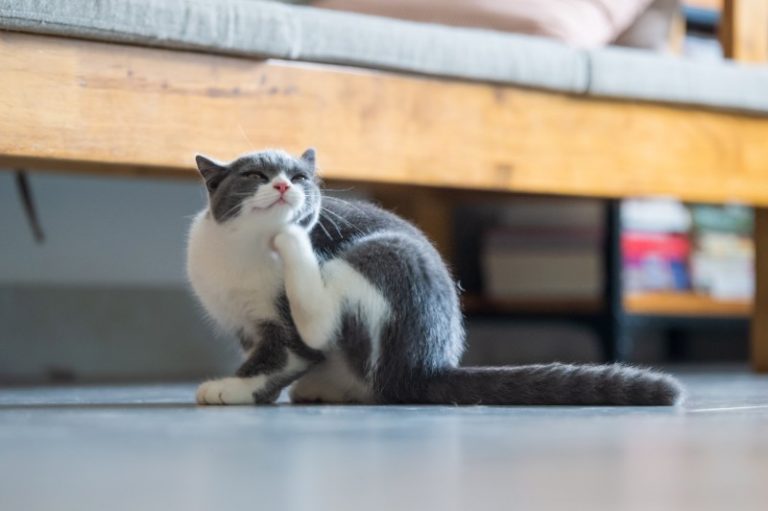 “Why does my pet need vaccines if she’s indoors all the time?” This is a common question asked by pet owners to their veterinarians. It may seem like a waste of money, but in reality, there are some very good reasons to make sure your indoor pets are protected from infectious diseases. And keeping them indoors does not necessarily eliminate your pet’s risk of disease.
“Why does my pet need vaccines if she’s indoors all the time?” This is a common question asked by pet owners to their veterinarians. It may seem like a waste of money, but in reality, there are some very good reasons to make sure your indoor pets are protected from infectious diseases. And keeping them indoors does not necessarily eliminate your pet’s risk of disease.
Unfortunately, many pets don’t see their veterinarian on an annual basis. A vaccination program coupled with annual wellness visits is critical to their overall health and well-being. And because some infectious diseases can be spread to humans, Maywood Veterinary Clinic is certain that vaccinating your indoor pet is the best way to not only protect them but your entire family as well.
The Risks Are Everywhere
You may feel that your pet is safe in their indoor “bubble”, but the fact is that infectious disease is everywhere. Here are a few ways that your indoor pet could be exposed:
Your pet could accidentally get outdoors – it doesn’t take a lot for a pet to slip out the door accidentally left open by a guest, family member, or repair worker. By the time you notice your pet has escaped, they’ve been exposed to any number of infectious diseases (not to mention parasites). If a lost pet ends up in a shelter, their risk of exposure increases exponentially.
Lifestyle changes – your intention is to have your pet for life, but sometimes circumstances can cause a change in your indoor pet’s lifestyle. Divorce, death, or a move may cause your pet to become an outdoor pet, live elsewhere, or be adopted by someone else, and you would not want her to be unprotected in these situations.
Stress-induced virus flare-ups – most pets are exposed to certain diseases at an early age. For example, many cats are exposed to the feline herpesvirus either in utero or in a shelter or multi-cat home, since it is highly contagious. Although in this case vaccination doesn’t eliminate the virus, it can keep flare-ups under control. This would spare your cat respiratory infections and eye problems from emerging if she gets sick or is stressed.
Wildlife entering your home – it’s not as uncommon as you might think! Bats can find their way inside through tiny holes or cracks, and even raccoons have been known to come indoors through pet doors, in search of food (both of these animals can carry rabies and other diseases). Don’t assume that keeping your pet indoors keeps her completely protected.
YOU – Your family can also accidentally infect your pets by stepping in an infected area and bringing germs inside on the soles of your shoes! All it takes is someone walking across the living room carpet and having your pet licking or rolling in the same area to spread infection.
It’s the law – in New Jersey, rabies vaccines are required for all cats and dogs, even those living indoors. These vaccines protect your pet from a fatal disease and you from heartbreak and loss. If your unvaccinated pet bites someone, the law could mandate that they are euthanized. The alternative could be a strict quarantine, at your expense, to make sure that your pet is rabies-free. Since rabies is communicable to humans, the safest route is vaccination.
Core Vaccines For Indoor Pets
A core vaccine is one that all pets receive, with few exceptions. These recommendations are usually made because a disease is either deadly to the pet, or is zoonotic. In cats, core vaccines are feline distemper and rabies. In dogs, core vaccines include canine distemper, rabies, parvovirus, adenovirus, and parainfluenza. Your veterinarian will come up with a plan for your pet that fits with her individual needs.
Zoonotic and infectious diseases are a fact of life no matter where you and your pet live. Year-round protection through vaccination is an effective way to not only protect your pet but other pets and your family, as well. Talk to us about your pet’s lifestyle. As an AAHA hospital, we can tailor a vaccination program that protects her no matter what happens in her life.
Call us at (201) 800-6039 with questions or concerns about vaccines for indoor pets, or schedule an appointment today.

